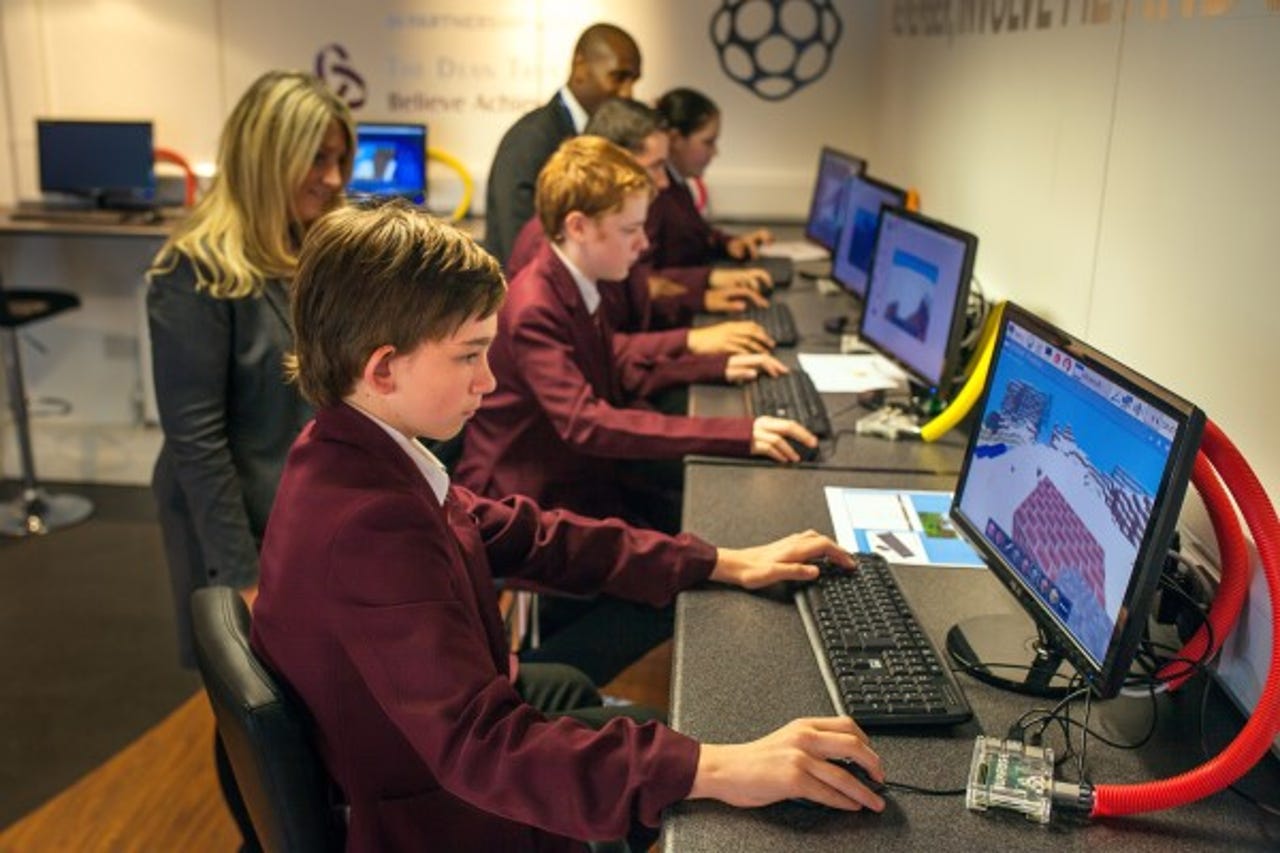UKFast plans to open Raspberry Pi cafes in Manchester schools


Students in the Raspberry Pi cafe at Broadoak school in Partington
UKFast, a cloud-hosting company based in Manchester, plans to invest £100,000 in opening another five Raspberry Pi cafes in schools in the Greater Manchester area. The expansion is based on the success of its first cafe in Broadoak school in Partington, where Raspberry Pi computers are used to train students in basic programming and hardware tinkering.
The company told ZDNet: "The Pi Cafes are directly financed by UKFast. By doing so we are equipping more young people with the skills they need to thrive in a digital world, and helping to close the digital skills gap. Our ethos at UKFast is to do something about it rather than just talk about it."
UKFast employs full-time teachers who already visit 50 schools and colleges a year and reach 57,000 young people. They teach masterclasses, workshops and code clubs, as well as running the company's technical apprenticeship scheme.
A Raspberry Pi 2 as supplied to schools
The new Pi cafes will be based at Holy Name RC Primary School in Moss Side, St Bede's prep school in Hulme, Alderley Edge School for Girls, The Hollins Technology College in Accrington, and the Factory Youth Zone in North Manchester.
UKFast says it is targeting areas where schools don't have enough resources for digital training, and all-girls schools that have traditionally had a "low uptake in technical subjects".
The company is also working with the Dean Trust "to launch a digital-focussed high school in Manchester following approval from the [British] government".
UKFast's investment in its local educational services is not entirely altruistic. The company employs about 400 people and is still expanding, so there's the prospect of hiring at least a few of the children it is helping to train. It could also reduce the competition for scarce technical skills that is driving up wages.